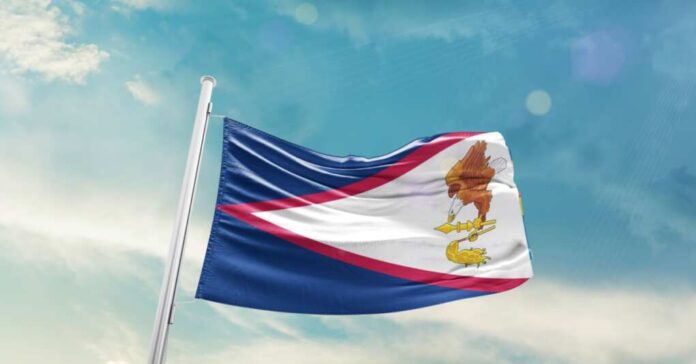
President Joe Biden enjoyed a nearly perfect sweep on Super Tuesday, but one U.S. territory snubbed him and opted for little-known candidate Jason Palmer. Palmer took four of American Samoa’s eleven Democratic delegates, leaving Biden with two. The remaining five delegates are unassigned and will be allocated based on the overall results of the primary season.
It was a purely symbolic loss with no direct bearing on the 2024 election. There were only 91 votes cast in the territory’s Democratic primary, but it was an annoying black mark that ruined Biden’s perfect score. Biden scored only 40 votes, soundly defeated by Palmer’s 50.
American Samoa has surprised the DNC before – in the 2020 Democratic primaries, billionaire investor Michael Bloomberg achieved his sole primary victory by winning in the territory.
American Samoa is an unincorporated territory of the United States in the South Pacific Ocean, to the southeast of the independent island nation of Samoa. It is approximately 1,600 miles northeast of New Zealand and 2,200 miles southwest of Hawaii.
Inhabited by Polynesians since ancient times, American Samoa first encountered Europeans in the 18th century. The islands drew the attention of missionaries, explorers, and sailors, mainly due to its well-sheltered natural harbor at Pago Pago. In the late 19th century, the United States claimed possession of American Samoa’s five primary islands, transforming them into a significant naval base. Its strategic importance surged during World War II and the subsequent Cold War era.
As of 2022, the population of American Samoa is around 45,000, with most being indigenous ethnic Samoans. Most American Samoans are bilingual and proficient in both English and Samoan. In 1967, the territory gained self-governance by adopting a constitution, and it remains unincorporated under direct United States government control.
Many Americans may be unfamiliar with American Samoa, especially since the territory holds no sway in general elections. American Samoa’s eleven delegates participate in the nomination process but do not directly affect the Electoral College. States determine the electoral college votes, and the District of Columbia and U.S. territories like American Samoa lack representation.
Similarly, the U.S. territories of Guam, the Northern Mariana Islands, Puerto Rico, and the U.S. Virgin Islands do not award electoral college votes. While their citizens participate in presidential primaries, their impact on the Electoral College remains symbolic rather than decisive.
But that doesn’t make a loss sting any less for Team Biden, who now joins Jimmy Carter as the only sitting president to lose a primary since 1980. In that election cycle, Carter lost 12 contests to Democratic challenger Ted Kennedy but ultimately won the Democratic primary. Republican Ronald Reagan crushed Carter in the presidential election.
Jason Palmer, an education technology venture capitalist and former Bill & Melinda Gates Foundation staffer, was largely unknown before his surprise victory. He never personally visited the territory but held several virtual campaign events in American Samoa. Interestingly, he won several hundred votes in New Hampshire’s and Nevada’s Democratic primaries this year and appeared on the ballot in Colorado and Vermont. According to campaign finance records, Palmer loaned over $500,000 of his personal funds to his presidential campaign.
Palmer says his campaign aims to excite young voters and people from various political backgrounds with a hopeful vision for the next four years. He warns Biden that talking about Donald Trump or foreign affairs won’t be enough to win in November and suggests that a clear, positive plan for the future is the only hope Democrats have to defeat the GOP frontrunner.
Looking ahead, Palmer plans to release his strategy for addressing the immigration crisis in Arizona. He aims to accumulate as many delegates as possible to influence the convention and prioritize education in this election. When asked about supporting Biden if he becomes the nominee, Palmer expressed hope that Biden would step aside for the next generation of leaders, including himself or other Democratic figures like Govs. Gretchen Whitmer, Jared Polis, or Gavin Newsom.
While Biden’s loss in American Samoa is noteworthy, it doesn’t significantly affect his overall lead in the nomination race. Biden remains focused on the broader election and his upcoming rematch with former President Donald Trump. However, Palmer emphasized the desire of the American people to pass the torch on to the next generation and said he would continue mobilizing young people and independents. He has pledged to support Biden in 2024 if the president secures the nomination.
On Tuesday, Trump had his own taste of defeat when former South Carolina governor Nikki Haley claimed a surprise victory in Vermont. Seeing no path forward, Haley dropped from the race the next day.
Palmer’s victory in American Samoa is not significant in the broader context of the 2024 election. Still, it was a sharp rebuke to Biden’s campaign and disrupted an otherwise flawless sweep. Biden would be well-advised to understand why he lost the territory rather than ignore the victory of an unknown challenger.















